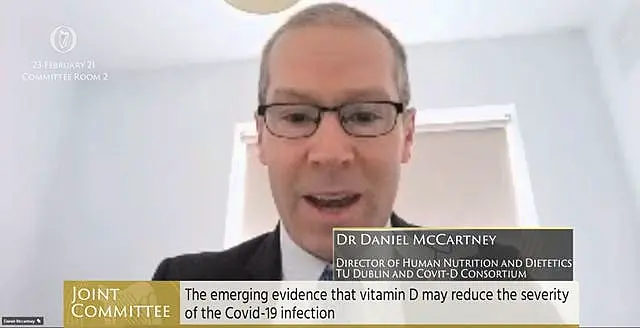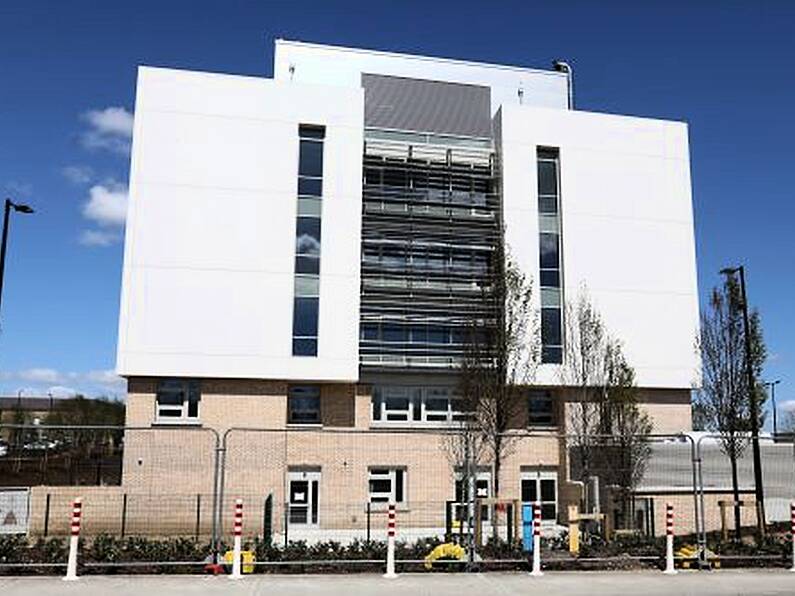By Cate McCurry, PA
Calls have been made for the National Public Health Emergency Team (Nphet) to include advice on vitamin D as part of its response to the Covid-19 pandemic.
A group of professors and researchers, who are members of the Covit-D Consortium, say explicit guidelines should be issued by public health officials on the supplementation of vitamin D.
The Oireachtas health committee was told research shows vitamin D reduces mortality among people who are diagnosed with coronavirus and it should form part of the Government’s new Living with Covid-19 strategy.
Professor Rose Anne Kenny said a study from the Irish Longitudinal Study on Ageing (TILDA) showed 60 per cent of middle-aged adults and older persons in Ireland have insufficient vitamin D in winter.
Prof Kenny said: “I think the bottom line is it would be very valuable if Nphet did more than recommend raising awareness of vitamin D.
“Individuals in Nphet are aware of the value of vitamin D and the science behind it, but we have heard nothing consistently solid from Nphet in terms of a public statement with respect to it.”
Deficiency
Social Democrats co-leader Roisin Shortall said she is concerned about the lack of clear advice or recommendations from Nphet in relation to vitamin D supplementation.
“Nphet say they are repeating the advice and say that the recommendations for vitamin D are being incorporated into wider messaging in relation to Covid. I have to say I haven’t heard that wider messaging from Nphet,” Ms Shortall told the committee.
“It’s really important for messaging to be made very clear.”
Professor James Bernard Walsh, from the School of Medicine at Trinity College Dublin, said around 70 per cent of people living in the Dublin metropolitan area as well as Kildare and Wicklow, are deficient in vitamin D during the wintertime.
“That’s a huge amount,” he added.
“We’ve seen the highest incidence in the BAME (black, Asian, and minority ethnic) communities who are at the highest level of deficiency – they have been so badly struck down with Covid.”

Dr Daniel McCartney said higher supplementation may be required under the medical supervision in at-risk groups (Oireachtas TV/PA)
Dr Daniel McCartney, director of human nutrition and dietetics at TU Dublin, said there is an extensive body of international research showing the protective role of vitamin D against Covid-19.
Dr McCartney said: “We want to be absolutely clear here that we are recommending that vitamin D supplementation in addition to these other health messages, in relation to social distancing, and also in relation to vaccine, is an additional intervention that may be of benefit.
“We think a recommendation and explicit guidelines for people in the Irish population, to supplement 20 to 25 micrograms per day, or 800 to 1,000 units per day, is absolutely essential.
“We also feel that higher supplementation may be required under the medical supervision in at-risk groups.
If the public got a clear message that they should be supplementing at ‘x’ dose... I think they would want to follow on from that
“Those would include people who are overweight or obese, which is 60 per cent of our adult population, and also older people or people in nursing homes in particular who have notably low vitamin D levels.”
He also said frontline healthcare workers would also benefit from vitamin D supplements.
He added: “These supplements are very cheap, they’re readily available. So if the public got a clear message that they should be supplementing at ‘x’ dose, in the current context, I think they would want to follow on from that.”
He said that while vitamin D deficiency is more prevalent in older adults, it was a wide societal problem.
Dr McCartney said about 50 per cent of young people aged 18 to 39 have low vitamin D levels at this time of year.
“It’s across the population and this is why it requires a central intervention from the statutory health authorities,” he added.






